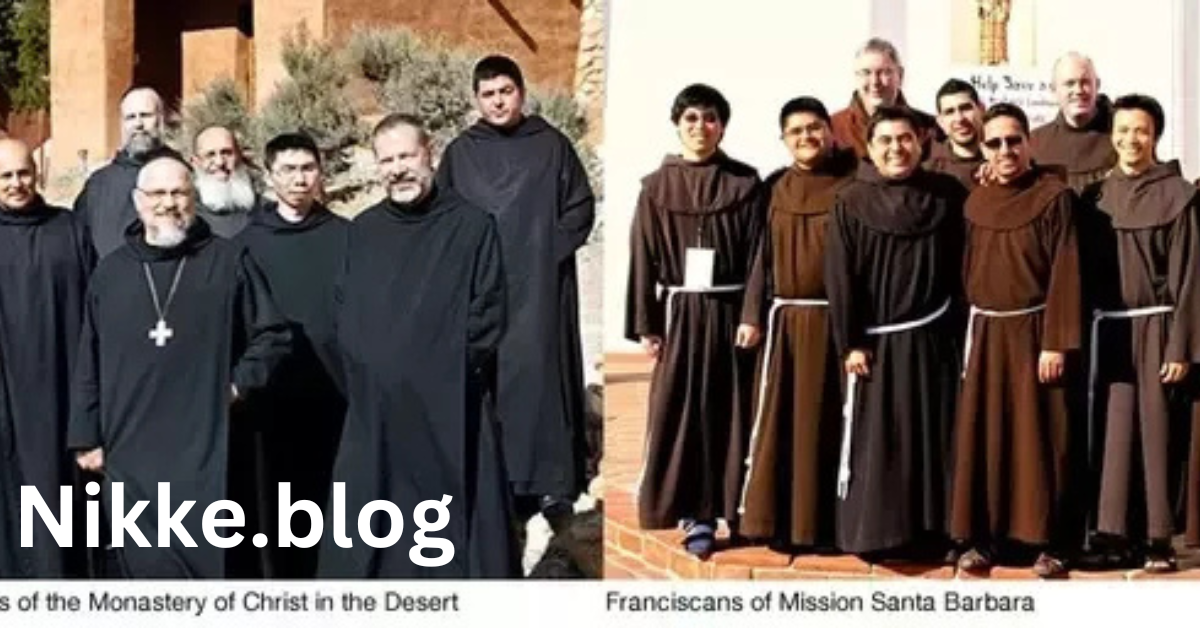Historical Background of the Dominican and Carmelite Orders
Origin of the Dominicans (Order of Preachers)
The Dominican Order, officially known as the Order of Preachers (OP), was founded by St. Dominic in the early 13th century. St. Dominic established this order in response to the growing number of heresies and the need for effective preaching and evangelization. The Dominicans emphasize a life dedicated to study, prayer, and preaching, with the primary mission of spreading the truth of the Gospel.
Origin of the Carmelites
The Carmelite Order has its roots in the 12th century when a group of hermits settled on Mount Carmel in present-day Israel. These early Carmelites sought to live a contemplative life dedicated to God, drawing inspiration from the prophet Elijah. The order later formalized its structure and rules, evolving into both an active and contemplative community focused on prayer and spirituality.
Mission and Charism of the Orders
Dominican Charism
The Dominican charism is characterized by a commitment to preaching, teaching, and the pursuit of truth. Dominicans believe that faith must be understood through study and reason, making intellectual rigor an integral part of their mission. Their motto, “To praise, to bless, to preach,” reflects their dedication to spreading the Gospel and engaging with the world through education and dialogue.
Carmelite Charism
In contrast, the Carmelite charism emphasizes contemplation and an intimate relationship with God. Carmelites focus on mental prayer and silence, seeking to deepen their spiritual life through solitude and reflection. Their mission is to foster a deep love for God and to grow in holiness, often drawing on the rich tradition of mysticism that characterizes Carmelite spirituality.
Spiritual Practices and Lifestyle
Dominican Practices
Dominicans engage in a balanced lifestyle of prayer, study, and community life. They often participate in communal prayer, especially the Liturgy of the Hours, and emphasize the importance of intellectual development. The Rosary is a significant devotion for Dominicans, serving as a tool for meditation and reflection on the life of Christ and the Virgin Mary.
Carmelite Practices
Carmelite spirituality is rooted in contemplative practices. Carmelites prioritize mental prayer, striving for a deep inner silence that allows them to listen to God. They often live in monasteries, embracing a lifestyle of simplicity and detachment from worldly distractions. This focus on contemplation enables them to grow in intimacy with God and to engage in a life of prayer for the Church and the world.
Notable Saints and Figures
Famous Dominicans
The Dominican Order has produced many influential saints and theologians. Among them is St. Thomas Aquinas, a renowned philosopher and theologian whose works have significantly shaped Catholic thought. Another notable figure is St. Catherine of Siena, a mystic and doctor of the Church known for her profound spiritual writings and commitment to social reform.
Famous Carmelites
The Carmelite Order is equally rich in spiritual heritage, featuring saints such as St. Teresa of Ávila, who reformed the Carmelite order and wrote extensively on prayer and mysticism. St. John of the Cross, another prominent Carmelite, is celebrated for his poetic works and teachings on the spiritual journey, particularly the “dark night of the soul.”
Dominican vs. Carmelite: Focus on Apostolic vs. Contemplative Life
Dominican Apostolic Life
Dominicans are primarily engaged in apostolic work, actively preaching and teaching the Gospel in various settings, including parishes, universities, and missions. Their intellectual focus informs their evangelization efforts, allowing them to address contemporary issues with theological depth and clarity.
Carmelite Contemplative Life
In contrast, Carmelites focus on a life of contemplation and prayer. While some branches, like the Discalced Carmelites, engage in apostolic activities, the core of their spirituality is centered on solitude and communion with God. This contemplative lifestyle allows them to foster a deeper relationship with the Divine and to offer their prayers for the Church and the world.
Dominican and Carmelite Devotions
Dominican Devotions
Dominicans are known for their devotion to the Rosary, which is both a prayer and a means of meditation. This devotion connects them to the mysteries of Christ and the Virgin Mary, reinforcing their commitment to spreading the Gospel. Additionally, Dominicans are dedicated to studying Scripture and Church teachings, viewing intellectual pursuit as a form of devotion.
Carmelite Devotions
Carmelites have a rich tradition of devotion centered on the Blessed Virgin Mary, particularly through the Brown Scapular, a symbol of their commitment to live in fidelity to God’s call. Their spiritual practices also emphasize mystical prayer, drawing on the teachings of saints like Teresa of Ávila and John of the Cross, who guide them in their journey toward union with God.
Modern-Day Presence and Influence
Dominican Influence Today
In the modern world, Dominicans play a significant role in education, theological research, and social justice advocacy. They are involved in various ministries, including preaching, teaching, and providing spiritual direction. Their intellectual contributions continue to shape Catholic thought and practice.
Carmelite Influence Today
Carmelite spirituality has gained popularity in contemporary Catholicism, particularly in the realm of contemplative prayer. Many people are drawn to the Carmelite way of life, seeking deeper intimacy with God through silence and reflection. The influence of Carmelite mystics remains strong, inspiring individuals to explore their spiritual journeys.
